Guest Blog by Dr Annabel de Frece and Rebecca Wells, Teaching Fellows, IFSTAL (Innovative Food Systems Teaching and Learning) Programme.
Funded by the Higher Education Funding Council of England, IFSTAL is a network of 7 different institutions: City, Oxford, Reading and Warwick Universities, the Royal Veterinary College, SOAS and the London School of Hygiene and Tropical Medicine. Students from these institutions come together on an online learning platform as well as for lectures, workshops, awaydays, webinars, symposia and a week long residential summer school.
Our team of researchers at the Centre for Food Policy often reflect that Food Policy as a subject area is inherently inter-disciplinary. Food, in all its complexity, is an issue central to all our lives and addressed by many different academic fields. So, while our Centre for Food Policy is located in the Department of Sociology at City, within the Centre are graduates from many different disciplines, working in many different ways. From geography to nutrition, biochemistry to social psychology, our staff and students come together to think about food policy and wicked food problems with a wealth of perspectives and expertise.
These diverse viewpoints have helped us to recognize a reality of food policy – that global food challenges like food (in)security, animal health, food waste and food poverty can only be meaningfully tackled by many different disciplines working together, taking an integrated and inclusive approach. And that’s why it makes sense for our teaching to be trans- multi- and inter- disciplinary as well.
So how can we help students transcend disciplinary boundaries and differences? And can we analyse the food system holistically, taking account of the multiple actors and often competing goals? How can environmental objectives be combined with economic objectives, for example? How can nutritionists speak to the private sector? How do we take an integrated approach to achieve the political will for change? Our Innovative Food Systems Teaching and Learning (IFSTAL) programme uses systems thinking to enable students from many backgrounds to tackle global food challenges together.
Using the work of Gerald Midgley, Ray Ison and others, IFSTAL’s systems thinking approach recognizes and engages with the complexity of the food system. Indeed, it argues that we are not just dealing with one food system, but many food systems. This is because so many different people and organisations, rules and regulations, socio-political and economic contexts are involved in getting our food from ‘farm to fork’. What’s more, all of those involved in this complex system hold different perspectives and motivations for change. One person’s farm is another’s factory, fishery or forest; one person’s fork is another’s chopsticks or fingers; it all depends on your background and your perspective.
 Food systems thinking maintains that while the elements of the food system are inextricably linked, there are so many different perspectives, so many different systems, we can’t hope to successfully map the whole. So, we need to talk about and draw boundaries. We need to make any distinctions, perspectives and assumptions we are making clear so that we can intervene to make meaningful and needed change. An example of how we do this is the DSRP framework, developed by Derek Cabrera, which is used in systems thinking to conceptualise and frame issues from different perspectives.
Food systems thinking maintains that while the elements of the food system are inextricably linked, there are so many different perspectives, so many different systems, we can’t hope to successfully map the whole. So, we need to talk about and draw boundaries. We need to make any distinctions, perspectives and assumptions we are making clear so that we can intervene to make meaningful and needed change. An example of how we do this is the DSRP framework, developed by Derek Cabrera, which is used in systems thinking to conceptualise and frame issues from different perspectives.
Systems thinking methods and frameworks, like DSRP, have been developed by systems thinkers to help participants analyse and change complex systems. They draw on but are not confined to qualitative ways of analysing activities and relationships between actors, institutions, processes and outcomes. IFSTAL uses so-called ‘Soft Systems Methodologies’ (or SSM) to try to collaboratively identify potential areas of the food system that require change and intervention, as well as predicting unintended consequences.
Our IFSTAL workshops bring together students from a variety of disciplines who work in mixed teams, so the workshops have a built-in interdisciplinary approach as each student views the system from their position of expertise. In the first workshop, we guide students in mapping an element or problem in the food system through a ‘rich picture’ technique, taking account of different actors, perspectives and processes. Rich pictures are a participatory method – everyone gets to try their hand. No-one is ‘in charge’ – everyone has a pen and is encouraged to put their ideas and thoughts on the paper.
In our second workshop, student teams critically analyse an intervention that could improve the problem they mapped in Workshop 1. Students use a BATWOVE framework (in which B=beneficiaries, A=actors, T=transformation, W=worldview, O=owners, V=victims and E=environmental constraints), which helps to examine a particular intervention and the likely and potential outcomes. The aim is to ensure the intervention works for all and to make transparent any unintended consequences or blocks that might inhibit change. Further analysis exposes issues of power and influence in both negative and positive ways and highlights where accommodations could be made for the intervention to benefit everyone. Students have used this method to look at the possible impact of a sugar, meat or palm oil tax, or how to minimize university canteen food waste. Other IFSTAL workshops and awaydays use different methods including participatory models and tools, gaming, and developing a theory of change. We hope these activities train students to be able to intervene in food system problems by thinking critically, reflectively, holistically and incorporating multiple perspectives. Being able to work effectively within a group is a key skill in working to affect change – and food sector experts that speak at our events tell us that these are key skills they want to see in future employees.
So IFSTAL training is not just about education, it’s about creating communities and networks and enabling individuals to work with each other as students and we hope, as professionals as they enter the workplace. What can be learned from the IFSTAL experience? Post-graduate education can be creative, innovative, inclusive and engaging. It can do more to prepare students for the workplace and to address the complex global food challenges we all face.
If you’re interested in finding out more about IFSTAL please email us at ifstal-city@city.ac.uk
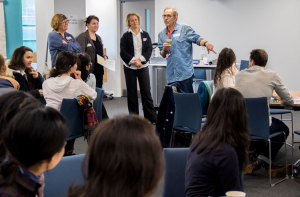
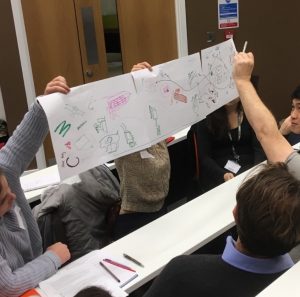
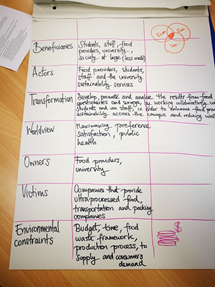
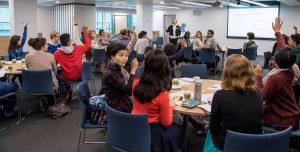
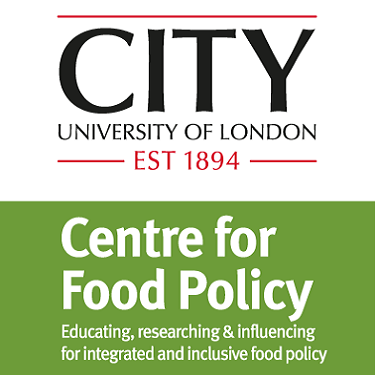

Leave a Reply